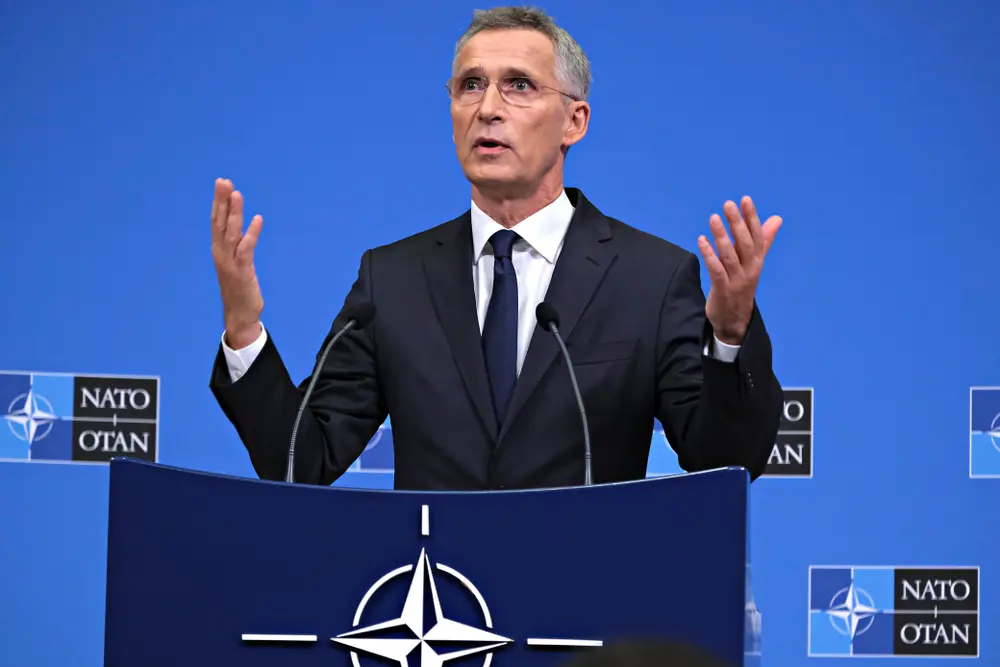
Secretary General Jens Stoltenberg
Western ammunition stocks are depleted, so all NATO allies are expected to join in production efforts and ramp up defense spending, NATO Secretary General Jens Stoltenberg said during the Day of Industry conference in Berlin on Monday, June 19th.
The NATO chief began by reassuring the audience that the alliance stands by Ukraine until the war ends and beyond, that’s without question. But then he shifted to internal matters, saying that it’s high time NATO members started thinking about defense more seriously.
“We must further strengthen our own defense. After Russia’s full-fledged invasion of Ukraine,
everyone understands much better why we need strong defenses. It is not to provoke a conflict but to preserve peace and protect our prosperity.” Stoltenberg said, pausing for a second before adding, “This costs money.”
Stoltenberg directly stated that he expects all NATO heads of state to agree on a new Defense Investment Pledge at the alliance’s upcoming Vilnius Summit (on July 11-12th) which will officially set the minimum defense spending at 2% of their annual GDP.
To comply with the famous 2% defense spending rule—formally agreed on during the Wales Summit in 2014—has always been an explicit expectation of NATO member states but not a binding one, so very few have actually spent that much before the war in Ukraine broke out.
Even now, only eight out of the 30 NATO members spend over 2% of their GDP on defense: the U.S., the UK, Greece, Poland, Croatia, Estonia, Latvia, and Lithuania. Only the U.S. and Greece are above 3%, with Athens spending 3.59% (or $8 billion) last year, and Washington 3.57%, or $811 billion.
It’s unclear if the new pledge adopted in Vilnius will be any different from the 2014 one, whether it will be a binding commitment or just the same old promises without any mechanism to enforce.
During his speech, Stoltenberg went on to say that ammunition production across the West must also be ramped up because the current NATO stocks are not going to last forever.
“We also need a more robust defense industry,” the NATO chief said. “Our weapons and ammunition stocks are depleted and need to be replenished, not just in Germany, but in many countries across NATO.”
The general ammunition shortage throughout the West as a consequence of the war in Ukraine is also why the European Union is in the midst of adopting the historic ‘ASAP’ (Act in Support of Ammunition Production) bill that began earlier this month, promising €500 million in subsidies for various weapons industry plants throughout EU member states.
